Understanding the Board Biography’s Essence
A board biography is not merely a retelling of your career highlights. It’s a strategic tool crafted to speak directly to your aptitude and aspirations for board service. Your biography should focus on areas where you have excelled and have measurable achievements that align with the responsibilities of a board director. Key elements include leadership experience, balance sheet and cash flow analysis competency, governance acumen, and sector-specific skills such as digital transformation, people and culture, mergers and acquisitions or customer experience.
Key Components of an Effective Board Biography
Leadership and Governance Expertise: Detail your experience leading complex organisations or initiatives, underscoring your ability to steer strategic directions and oversee significant business transformations. Highlight any previous board or committee roles, specifying your contributions and the value added through your involvement.
Profit and Loss Oversight: Clarify the extent of your profit and loss responsibilities and associated financial analysis competency to demonstrate your capability in managing and enhancing financial outcomes, a critical aspect that boards always value.
Sector-Specific Skills: If your career has equipped you with specialised knowledge in areas like e-commerce, technology integration, or global market expansions, make these a focal point. Such competencies often address direct needs within a board, positioning you as a candidate who can deliver additional value.
Strategic Influence: Describe your involvement in shaping corporate strategy, providing examples of how you’ve influenced policy or operational directions at a macro level. This should go beyond mere participation, showcasing your ability to guide and transform.
What to Omit from Your Board Biography
While it’s crucial to highlight relevant experiences, some details do not serve the strategic purpose of a board biography:
- Avoid recounting your entire career history, especially roles that do not directly relate to governance or leadership.
- Eliminate vague descriptors and overused jargon that might dilute the impact of your achievements.
- Exclude minor roles and early career positions that do not demonstrate your qualifications for a board directorship.
Tailoring Your Biography for Different Boards
Each board has its unique culture, goals, and challenges. Customise your biography to reflect how your specific experiences and skills align with the board you aim to join, whether a non-profit, startup, or large public corporation. This will demonstrate not only your understanding of the board’s needs but also your ability to integrate and contribute effectively.
Your board biography is more than a document; it’s a crafted representation of your professional narrative, designed to communicate your readiness and suitability for high-level board roles.
At Galvin-Rowley Executive, we specialise in honing such narratives, ensuring they resonate well with the ethos and expectations of prospective boards. For executives looking to ascend to these respected roles, understanding how to articulate your background and expertise succinctly and impactfully can generate significant governance opportunities and a fulfilling continuation of your executive journey.
For more guidance on navigating your executive career towards a board appointment, contact Jen Galvin-Rowley or Bruce McDonald from Galvin-Rowley Executive for further assistance.




